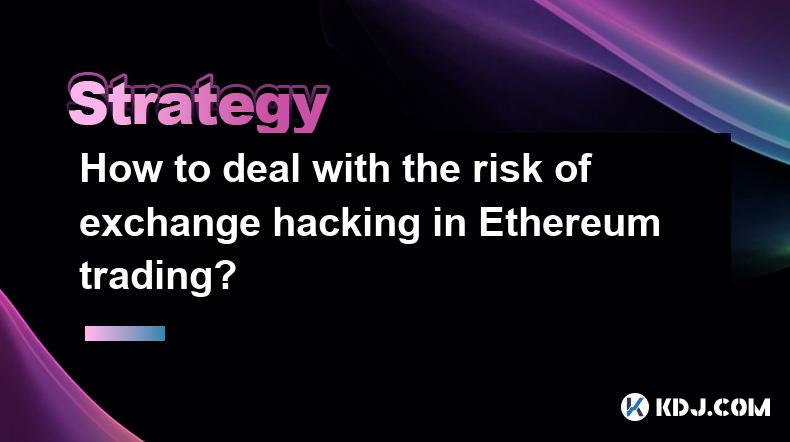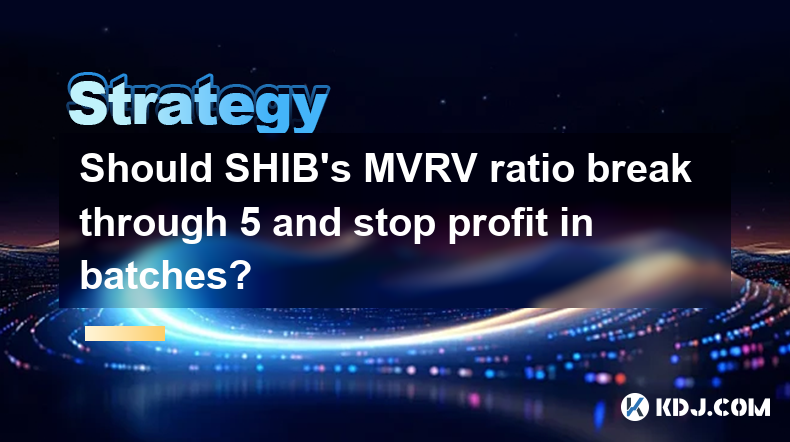-
 Bitcoin
Bitcoin $87,315.1852
3.56% -
 Ethereum
Ethereum $1,630.6745
3.43% -
 Tether USDt
Tether USDt $1.0000
-0.01% -
 XRP
XRP $2.1211
3.50% -
 BNB
BNB $601.3750
1.83% -
 Solana
Solana $139.4069
1.88% -
 USDC
USDC $1.0000
0.00% -
 Dogecoin
Dogecoin $0.1621
5.44% -
 TRON
TRON $0.2427
-1.07% -
 Cardano
Cardano $0.6408
4.12% -
 Chainlink
Chainlink $13.4721
4.10% -
 Avalanche
Avalanche $20.5905
6.44% -
 UNUS SED LEO
UNUS SED LEO $9.0293
-3.55% -
 Stellar
Stellar $0.2580
6.57% -
 Toncoin
Toncoin $3.0124
1.24% -
 Shiba Inu
Shiba Inu $0.0...01262
3.69% -
 Sui
Sui $2.2608
7.36% -
 Hedera
Hedera $0.1701
4.81% -
 Bitcoin Cash
Bitcoin Cash $340.3613
1.98% -
 Polkadot
Polkadot $3.9035
2.19% -
 Litecoin
Litecoin $80.3247
5.82% -
 Hyperliquid
Hyperliquid $17.9745
1.79% -
 Dai
Dai $1.0000
0.00% -
 Bitget Token
Bitget Token $4.4669
1.79% -
 Ethena USDe
Ethena USDe $0.9992
0.00% -
 Pi
Pi $0.6333
1.02% -
 Monero
Monero $215.0155
0.40% -
 Uniswap
Uniswap $5.4281
4.46% -
 Pepe
Pepe $0.0...07881
7.27% -
 Aptos
Aptos $5.1724
4.43%
How to deal with the risk of exchange hacking in Ethereum trading?
By implementing strong security measures, including regular monitoring and password management, traders can safeguard their Ethereum investments against exchange hacking risks.
Feb 27, 2025 at 02:42 pm

Key Points:
- Assess exchange security measures
- Use strong passwords and two-factor authentication (2FA)
- Store cryptocurrency offline in hardware wallets or cold storage
- Diversify holdings across multiple platforms
- Monitor transactions and account activity regularly
- Report any security breaches immediately
- Be aware of phishing scams
- Consider using a hardware security key
How to Deal with the Risk of Exchange Hacking in Ethereum Trading
1. Assess Exchange Security Measures
When choosing an exchange, it's crucial to evaluate its security practices. Look for exchanges that have:
- Strong password and encryption protocols
- 2FA and other multi-factor authentication options
- Malware and intrusion detection systems
- Insurance coverage for lost or stolen assets
- A track record of protecting user funds
2. Use Strong Passwords and 2FA
Create strong, unique passwords for each exchange account and avoid using the same one across multiple platforms. Additionally, enable 2FA to add an extra layer of security. This requires you to provide a second form of authentication, such as a code sent to your phone or a hardware token, when logging in.
3. Store Cryptocurrency Offline
While keeping cryptocurrency on exchanges for trading purposes is convenient, it exposes it to potential hacking risks. To mitigate this, store the majority of your funds offline in hardware wallets or cold storage. These are physical devices that provide secure storage for your private keys, preventing unauthorized access.
4. Diversify Holdings
Avoid keeping all your cryptocurrency on one exchange. Instead, spread your holdings across multiple platforms to reduce the risk of losing everything in a single hack. This also provides redundancy in case one exchange becomes unavailable or experiences technical issues.
5. Monitor Transactions and Account Activity
Regularly check your exchange account for any unusual activity or unauthorized transactions. Set up notifications to be informed of any changes to your balances or account settings. If you notice any suspicious activity, report it to the exchange immediately.
6. Report any Security Breaches Immediately
In the event of a security breach, promptly report it to the exchange and take immediate steps to protect your assets. This includes changing your password, revoking API keys, and contacting customer support for assistance.
7. Be Aware of Phishing Scams
Phishing emails and websites mimic legitimate exchanges to trick you into revealing your login credentials or private keys. Be cautious of any suspicious communication or website URLs. Always verify the authenticity of the source before providing any sensitive information.
8. Consider Using a Hardware Security Key
For added protection, consider using a hardware security key. These devices provide a physical barrier against phishing attacks and prevent unauthorized access to your exchange accounts, even if your password is compromised.
FAQ:
- What is the most secure way to store Ethereum?
Hardware wallets and cold storage are the most secure methods for storing Ethereum offline, providing protection against unauthorized access and hacks. - How often should I change my exchange password?
It's recommended to change your exchange password regularly, every 3-6 months, especially if you suspect any suspicious activity. - What should I do if I suspect my exchange account has been hacked?
Immediately contact the exchange, change your password, revoke API keys, and move your funds to a secure wallet. Report the breach to relevant authorities as well. - Are all cryptocurrency exchanges equally secure?
No, exchange security measures vary depending on the platform. It's essential to assess each exchange's security practices before choosing one. - What is the role of 2FA in protecting my exchange account?
2FA adds an extra layer of security by requiring a second form of authentication, such as a code sent to your phone or a hardware token. It prevents unauthorized access even if your password is compromised.
Disclaimer:info@kdj.com
The information provided is not trading advice. kdj.com does not assume any responsibility for any investments made based on the information provided in this article. Cryptocurrencies are highly volatile and it is highly recommended that you invest with caution after thorough research!
If you believe that the content used on this website infringes your copyright, please contact us immediately (info@kdj.com) and we will delete it promptly.
- Ethereum (ETH) Attempts a Comeback as Key Resistance Nears
- 2025-04-21 20:00:20
- Bitcoin Did Not Have the Explosive Start Many Expected
- 2025-04-21 20:00:20
- Bitcoin (BTC) Surges to New All-Time Highs as Gold Market Invests Flock to Safe-Haven Assets
- 2025-04-21 19:55:13
- AI Trading Agents Are Disrupting the Financial Services Industry
- 2025-04-21 19:55:13
- 4 Crypto Coins to Watch That Are Rewriting the Rules
- 2025-04-21 19:50:12
- President Donald Trump's threat to terminate Federal Reserve Chairman Jerome Powell
- 2025-04-21 19:50:12
Related knowledge

What to do if SHIB's HODL wave indicator shows loose chips?
Apr 21,2025 at 03:07pm
If the SHIB's HODL wave indicator shows loose chips, it suggests that a significant portion of the SHIB holders are selling their tokens, potentially leading to increased volatility and a possible price drop. Understanding how to navigate this situation is crucial for any SHIB investor. This article will guide you through the steps to take when you noti...

Is it a risk that SHIB's derivatives position is 3 times that of the spot?
Apr 20,2025 at 12:35am
Is it a risk that SHIB's derivatives position is 3 times that of the spot? The cryptocurrency market is known for its volatility and high-risk nature, and Shiba Inu (SHIB) is no exception. One of the metrics that traders and investors closely monitor is the ratio of derivatives to spot positions. SHIB's derivatives position being three times that of the...

What does SHIB's Cardano coefficient below 0.3 indicate?
Apr 19,2025 at 08:00am
What does SHIB's Cardano coefficient below 0.3 indicate? The Cardano coefficient, often used within the cryptocurrency community, is a metric that helps investors and analysts understand the correlation between different cryptocurrencies. When it comes to SHIB (Shiba Inu) and its Cardano coefficient falling below 0.3, this indicates a relatively low cor...

Is SHIB's TVL suddenly increasing by 20% a positive signal?
Apr 20,2025 at 08:07am
The sudden increase of SHIB's TVL (Total Value Locked) by 20% has sparked a lot of interest and speculation within the cryptocurrency community. TVL is an important metric that represents the total amount of assets locked in a DeFi protocol, indicating the level of user engagement and trust in the platform. In this article, we will explore whether this ...

What does SHIB's exchange inventory ratio hit a new low mean?
Apr 21,2025 at 02:50am
The term 'exchange inventory ratio' refers to the percentage of a cryptocurrency's total supply that is held on exchanges. When we say that SHIB's exchange inventory ratio hit a new low, it means that the proportion of Shiba Inu (SHIB) tokens held on cryptocurrency exchanges has reached its lowest point in a given period. This metric is significant beca...

Should SHIB's MVRV ratio break through 5 and stop profit in batches?
Apr 20,2025 at 11:35pm
The MVRV (Market Value to Realized Value) ratio is a key metric used in the cryptocurrency market to assess whether a particular asset is overvalued or undervalued. For Shiba Inu (SHIB), a popular meme coin, understanding the implications of its MVRV ratio breaking through the 5 threshold is crucial for investors looking to manage their portfolios effec...

What to do if SHIB's HODL wave indicator shows loose chips?
Apr 21,2025 at 03:07pm
If the SHIB's HODL wave indicator shows loose chips, it suggests that a significant portion of the SHIB holders are selling their tokens, potentially leading to increased volatility and a possible price drop. Understanding how to navigate this situation is crucial for any SHIB investor. This article will guide you through the steps to take when you noti...

Is it a risk that SHIB's derivatives position is 3 times that of the spot?
Apr 20,2025 at 12:35am
Is it a risk that SHIB's derivatives position is 3 times that of the spot? The cryptocurrency market is known for its volatility and high-risk nature, and Shiba Inu (SHIB) is no exception. One of the metrics that traders and investors closely monitor is the ratio of derivatives to spot positions. SHIB's derivatives position being three times that of the...

What does SHIB's Cardano coefficient below 0.3 indicate?
Apr 19,2025 at 08:00am
What does SHIB's Cardano coefficient below 0.3 indicate? The Cardano coefficient, often used within the cryptocurrency community, is a metric that helps investors and analysts understand the correlation between different cryptocurrencies. When it comes to SHIB (Shiba Inu) and its Cardano coefficient falling below 0.3, this indicates a relatively low cor...

Is SHIB's TVL suddenly increasing by 20% a positive signal?
Apr 20,2025 at 08:07am
The sudden increase of SHIB's TVL (Total Value Locked) by 20% has sparked a lot of interest and speculation within the cryptocurrency community. TVL is an important metric that represents the total amount of assets locked in a DeFi protocol, indicating the level of user engagement and trust in the platform. In this article, we will explore whether this ...

What does SHIB's exchange inventory ratio hit a new low mean?
Apr 21,2025 at 02:50am
The term 'exchange inventory ratio' refers to the percentage of a cryptocurrency's total supply that is held on exchanges. When we say that SHIB's exchange inventory ratio hit a new low, it means that the proportion of Shiba Inu (SHIB) tokens held on cryptocurrency exchanges has reached its lowest point in a given period. This metric is significant beca...

Should SHIB's MVRV ratio break through 5 and stop profit in batches?
Apr 20,2025 at 11:35pm
The MVRV (Market Value to Realized Value) ratio is a key metric used in the cryptocurrency market to assess whether a particular asset is overvalued or undervalued. For Shiba Inu (SHIB), a popular meme coin, understanding the implications of its MVRV ratio breaking through the 5 threshold is crucial for investors looking to manage their portfolios effec...
See all articles






















































































